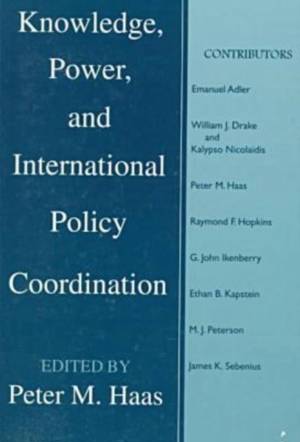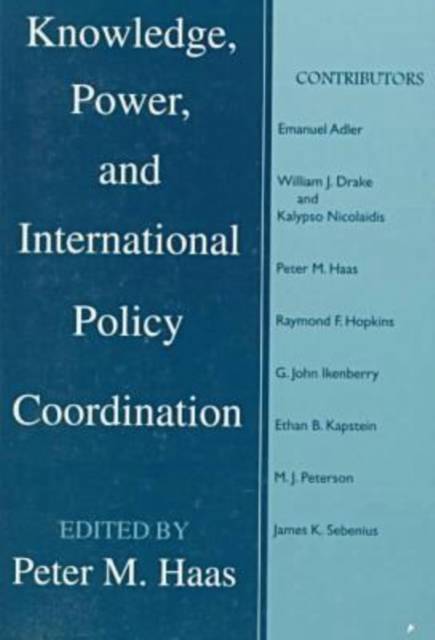
- Afhalen na 1 uur in een winkel met voorraad
- Gratis thuislevering in België vanaf € 30
- Ruim aanbod met 7 miljoen producten
- Afhalen na 1 uur in een winkel met voorraad
- Gratis thuislevering in België vanaf € 30
- Ruim aanbod met 7 miljoen producten
Zoeken
Omschrijving
The increasing complexity of the world's problems has escalated both the need for international policy coordination. With that in mind, the contributors to this volume assess what happens to the distribution of power when policymakers rely on the counsel of technical experts to make decisions of international importance. Because the way states identify and respond to problems depends not only on how policymakers understand of the issues but also on how the issues are represented by their advisers, the contributors examine the growing role that epistemic communities play in several areas: facilitating governmental learning; articulating the cause-and- effect relationships of global problems; helping to discern state interests; framing the issues for collective debate; proposing specific policies; and identifying salient points for international negotiation.
Specificaties
Betrokkenen
- Auteur(s):
- Uitgeverij:
Inhoud
- Aantal bladzijden:
- 390
- Taal:
- Engels
- Reeks:
Eigenschappen
- Productcode (EAN):
- 9781570030895
- Verschijningsdatum:
- 1/02/1997
- Uitvoering:
- Paperback
- Formaat:
- Trade paperback (VS)
- Afmetingen:
- 154 mm x 228 mm
- Gewicht:
- 589 g

Alleen bij Standaard Boekhandel
+ 83 punten op je klantenkaart van Standaard Boekhandel
Beoordelingen
We publiceren alleen reviews die voldoen aan de voorwaarden voor reviews. Bekijk onze voorwaarden voor reviews.







